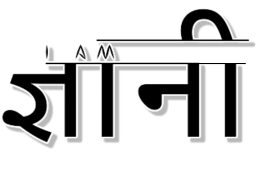The monarchy in Britain has a long and complex history that stretches back over a thousand years. Here is an overview of the major periods and key events in the history of the British monarchy:
Early Monarchy
Anglo-Saxon Period (circa 871-1066):
- Alfred the Great (871-899): Often considered the first true King of England, Alfred defended his kingdom against Viking invasions and laid the foundations for a unified English kingdom.
- Aethelstan (924-939): Recognized as the first king to rule over a unified England, defeating the last Viking strongholds.
Norman Conquest and Middle Ages
Norman Period (1066-1154):
- William the Conqueror (1066-1087): Established Norman rule in England after the Battle of Hastings in 1066.
- The Domesday Book: Commissioned by William in 1085, this was a comprehensive survey of land and property in England.
Plantagenet Period (1154-1485):
- Henry II (1154-1189): Strengthened royal authority and implemented legal reforms.
- Magna Carta (1215): Signed by King John, it limited royal power and laid the foundation for parliamentary democracy.
- The Hundred Years’ War (1337-1453): A series of conflicts between England and France, marking significant events like the reign of Edward III and the rise of the House of Lancaster.
Wars of the Roses (1455-1487):
- Henry VI and Edward IV: Period of civil wars between the houses of Lancaster and York, ending with the rise of the Tudor dynasty.
- Side Effects of Vitamin D Shots and Their Hidden Link With Blocked Arteries

- What is Share Market? Complete Guide with History, Working & Benefits

- A Visual Journey Through Studio Ghibli’s Magical World

Tudor and Stuart Periods
Tudor Period (1485-1603):
- Henry VII (1485-1509): Founder of the Tudor dynasty, ended the Wars of the Roses.
- Henry VIII (1509-1547): Established the Church of England, separating from the Roman Catholic Church.
- Elizabeth I (1558-1603): Last Tudor monarch, her reign saw the flourishing of English drama and the defeat of the Spanish Armada in 1588.
Stuart Period (1603-1714):
- James I (1603-1625): First Stuart king of England, succeeding Elizabeth I.
- English Civil War (1642-1651): Conflict between royalists and parliamentarians, leading to the temporary overthrow of the monarchy.
- Commonwealth and Protectorate (1649-1660): Period of republican government under Oliver Cromwell.
- Restoration (1660): Monarchy restored under Charles II.
- Glorious Revolution (1688): Overthrow of James II, leading to the joint reign of William III and Mary II and the establishment of constitutional monarchy.
Hanoverian Period and Modern Monarchy
Hanoverian Period (1714-1901):
- George I (1714-1727): First Hanoverian king of Great Britain.
- George III (1760-1820): Reign marked by the American Revolution and the Napoleonic Wars.
- Victoria (1837-1901): Longest-reigning monarch of the time, her era saw the expansion of the British Empire and significant industrial, cultural, and political changes.
20th Century to Present:
- Edward VII (1901-1910): Initiated the Edwardian era.
- George V (1910-1936): Reigned during World War I.
- Edward VIII (1936): Abdicated to marry Wallis Simpson.
- George VI (1936-1952): Reigned during World War II.
- Elizabeth II (1952-2022): Longest-reigning current monarch, saw significant changes in British society and the Commonwealth.
- Charles III (2022-present): Current monarch, continuing the legacy of the modern British monarchy.
Key Historical Shifts
- Magna Carta (1215): Limited the powers of the monarch and established certain legal protections for subjects.
- Glorious Revolution (1688) and the Bill of Rights (1689): Established parliamentary sovereignty and constitutional monarchy.
- Acts of Union (1707 and 1800): United England and Scotland into Great Britain and later added Ireland, creating the United Kingdom.
- Victorian Era: Marked by the expansion of the British Empire and the Industrial Revolution.
- 20th Century: Transitioned to a more ceremonial and constitutional role, especially post-World War I and World War II.
The British monarchy has evolved from absolute rule to a constitutional form, where the monarch’s powers are largely ceremonial and symbolic, with real political power resting in the elected Parliament.




